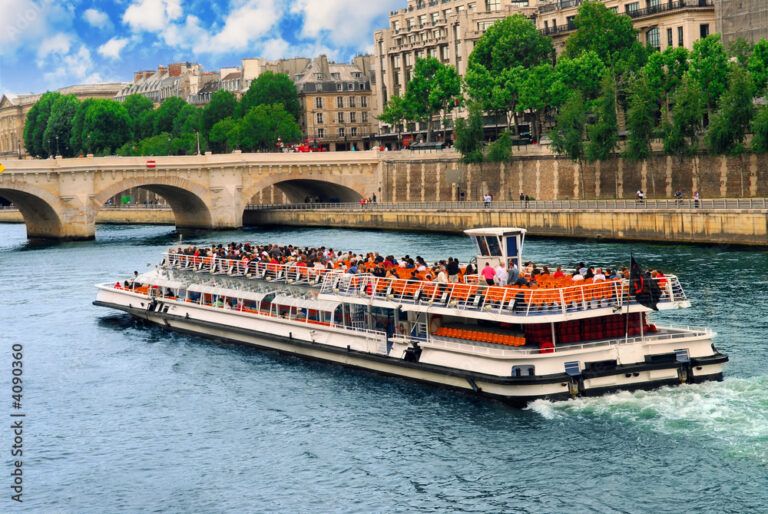Dos and Don’ts When Visiting Thailand
Thailand, often called the “Land of Smiles,” is a destination that offers stunning beaches, vibrant cities, and a rich cultural heritage. However, to fully appreciate and enjoy your time in this Southeast Asian paradise, it’s important to be mindful of local customs and cultural norms. Understanding the dos and don’ts when visiting Thailand can make your trip smoother, more enjoyable, and respectful of the local way of life.
Dos and Don’ts When Visiting Thailand
Do Respect the Thai Royal Family
One of the most important aspects of Thai culture is the deep reverence for the monarchy. The Thai royal family is highly respected, and any negative remarks or actions against them can lead to serious consequences, including imprisonment. Always stand up when the national anthem is played, which happens in public places like cinemas and during government functions. Additionally, avoid stepping on any currency, as it bears the image of the King.
Don’t Touch People’s Heads
In Thailand, the head is considered the most sacred part of the body. As such, you should never touch someone’s head, even in a friendly gesture. This is especially important to remember when interacting with monks, who are deeply respected in Thai society. If you accidentally touch someone’s head, a sincere apology can help to rectify the situation, but it’s best to avoid doing so altogether.
Do Dress Modestly
Thailand is a country with strong cultural and religious traditions, especially when it comes to attire. When visiting palace, government offices or temples, known as “wats”, it’s crucial to dress modestly. This means covering your shoulders and knees. Both men and women should avoid wearing revealing clothing, such as shorts, tank tops, or low-cut shirts. If you’re unsure about what to wear, it’s always better to err on the side of caution and choose more conservative clothing.
Don’t Point Your Feet at People or Religious Objects
In Thai culture, the feet are considered the lowest and dirtiest part of the body. It’s important not to point your feet at people or religious objects, as this is seen as highly disrespectful. When sitting, avoid crossing your legs in a way that might direct your feet towards others. Additionally, if you’re sitting on the floor in a temple, make sure your feet are tucked under you or behind you to show respect.
Do Use the Traditional Thai Greeting – The Wai
The “wai” is a traditional Thai greeting that involves placing your palms together in a prayer-like position and bowing slightly. It’s a sign of respect and is used when greeting someone, thanking them, or saying goodbye. The wai is especially important when interacting with elders, monks, or people in positions of authority. If someone offers you a wai, it’s polite to return the gesture, although there are exceptions when it comes to children or service staff.
Don’t Raise Your Voice or Show Aggression
Thailand is known for its relaxed and peaceful culture, and maintaining a calm demeanor is highly valued. Raising your voice, showing aggression, or losing your temper in public is considered very rude and inappropriate. If you find yourself in a frustrating situation, try to remain calm and handle the matter with a smile. Patience and politeness go a long way in Thai society, and you’ll find that a gentle approach is much more effective.
Do Remove Your Shoes Before Entering Homes and Temples
In Thailand, it’s customary to remove your shoes before entering someone’s home or a temple. This practice is a sign of respect and cleanliness. You’ll often see shoe racks or designated areas outside of homes and temples where you can leave your footwear. Make sure your feet are clean before entering, and consider carrying a pair of socks if you’re concerned about walking barefoot in certain areas.
Don’t Publicly Display Affection
While Thailand is generally tolerant, public displays of affection (PDA) are frowned upon, especially in more conservative areas. Holding hands is usually acceptable, but anything more intimate, such as kissing or hugging, should be avoided in public places. Thai culture values modesty and discretion, so it’s best to keep romantic gestures private.
Do Respect Religious Customs
Thailand is predominantly Buddhist, and religious customs play a significant role in everyday life. When visiting temples, follow the dress code and behave respectfully. Always lower your voice, refrain from touching religious statues, and avoid taking photos where it’s prohibited. Women should never touch or close to a monk, as this is considered inappropriate. If you’re offering food or donations to monks, place the item on a cloth or in their bowl rather than handing it directly to them.
Don’t Be Offended by Personal Questions
Thais are naturally curious and may ask personal questions that might seem intrusive by Western standards. Questions about your age, marital status, and income are common and are usually asked with good intentions. Instead of taking offense, try to respond politely or steer the conversation towards another topic if you feel uncomfortable. This is part of the Thai way of building rapport and understanding others better.
Do Bargain Politely in Markets
Bargaining is a common practice in Thai markets, and it’s seen as a friendly exchange rather than a confrontation. When bargaining, do so with a smile and a sense of humor. It’s important to remain polite and respectful, as being too aggressive or demanding can offend the vendor. If you reach a price that both you and the seller are happy with, it’s customary to finalize the deal with a smile and a friendly thank you, or “khop khun krup/ka.”
Don’t Expect Everyone to Speak English
While English is widely spoken in tourist areas, it’s not as common in more rural or less touristy parts of Thailand. Learning a few basic Thai phrases can go a long way in enhancing your travel experience. Simple phrases like “hello” (Sawasdee krup/ka), “thank you” (khop khun krup/ka), and “how much?” (tao rai krup/ka?) will be greatly appreciated by locals and can help you navigate your way around more easily.
Do Be Mindful of Your Belongings
Like in any other travel destination, it’s important to be mindful of your belongings in Thailand. Petty theft can happen in crowded areas, so keep an eye on your bags, wallets, and electronics. Use hotel safes for valuable items and be cautious when withdrawing money from ATMs. Additionally, when traveling on public transportation, keep your belongings close to you and avoid displaying expensive items.
Don’t Tip Excessively
Tipping is not a traditional practice in Thailand, but it has become more common in tourist areas. If you receive exceptional service, leaving a small tip is appreciated but not expected. In restaurants, a tip of around 10% is usually sufficient unless many restaurants have the service charged included. In hotels, you can tip porters or housekeeping staff a small amount. However, don’t feel obligated to tip for every service, and if in doubt, simply follow what the locals do.
Conclusion
Thailand is a beautiful country with a rich culture and warm, welcoming people. By understanding and respecting the dos and don’ts when visiting Thailand, you’ll not only enhance your travel experience but also show appreciation for the local customs and traditions. Whether you’re exploring bustling cities, serene temples, or idyllic beaches, keeping these guidelines in mind will help you navigate Thailand with ease and respect, ensuring a memorable and harmonious journey.
FAQs
- What should I avoid doing in Thailand?
Avoid disrespecting the royal family, touching people’s heads, pointing your feet at others, and raising your voice in public. Additionally, refrain from public displays of affection. - Is it okay to wear shorts in Thailand?
Shorts are generally acceptable in casual settings, but when visiting temples or more formal places, it’s important to dress modestly by covering your shoulders and knees. - How should I greet people in Thailand?
The traditional Thai greeting is the “wai,” where you place your palms together and bow slightly. It’s a sign of respect, especially when greeting elders or monks. - Can I bargain in Thai markets?
Yes, bargaining is common in Thai markets. Do so politely and with a smile, keeping the exchange friendly and respectful. - Is it necessary to tip in Thailand?
Tipping is not mandatory in Thailand but is appreciated for good service. In restaurants, a tip of around 10% is customary, though not always expected. - What language is spoken in Thailand?
Thai is the official language of Thailand. While English is spoken in tourist areas, learning a few basic Thai phrases can be helpful and appreciated by locals.







